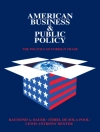The conventional wisdom on coral reef management tells us that decentralized management, where the government shares power with local people, has both economic and ecological benefits. Three decades of research show that grassroots, stakeholder-focused management allows communities to collaboratively and sustainably manage reefs. "The people" began demanding a seat at the table in the 1990s, with decentralized management even becoming a requirement for international donor-funded development projects. Nowadays, the inclusion of stakeholders, with governments even asking for their help, is the norm. Much of the literature on coral reef management has documented the social and ecological impacts of an increasingly participatory style of management all over the world. But it is yet to be seen how this participatory management will deal with emerging threats such as climate change. Climate change is increasingly recognized as the greatest threat to coral reefs, outweighing local stressors such as overfishing. Similarly, global private multinational companies now hold concentrated power that rivals that of many national governments. Companies decisions made without any input from local communities are increasingly impacting global ecosystems, especially coral reefs. A puzzle has emerged for decision-makers and stakeholders alike: How can participatory management institutions respond to global environmental change? How does conservation policy enable (or diminish) the people to have their voices heard despite power differentials? This book poses some initial answers to this puzzle, drawing on the academic discipline of public policy.We focus on democratic, participatory, stakeholder-driven forms of coral reef management and how they are meeting new challenges in recent years. It begins with the story of grassroots activists in the Cayman Islands who organized the first-ever people s referendum against the incredibly powerful interests of the international cruise industry to prevent destruction of local reefs. How did this social movement contest power so effectively? Then, our focus moves to another case where grassroots activists, specifically the Reef Guardians of South Florida, organized to fight reef destruction in American courts. This case is unique and interesting as the American Federal Government was damaging reefs, working at cross purposes with other branches of the federal government tasked with protecting reefs. Why was the federal government violating its own species protection laws? How did people s movements ensure accountability? Thus, the book examines how subnational jurisdictions, primarily states, manage immense coral reef resources through an in-depth look at the Florida Keys National Marine Sanctuary. This sanctuary was the first stakeholder-driven marine-protected area in the United States, one that is rapidly adapting to global change. Finally, we examine how one of the most important democratic institutions in the world, the United States Congress, is responding to global change in American reefs. Congress s response to climate-driven coral bleaching is interesting because lawmakers from both sides of the aisle are coming together to make legislation on coral conservation despite the partisan rancor and gridlock that characterized the Trump regime.
Kelly Dunning
Democratic Management of an Ecosystem Under Threat [PDF ebook]
The People’s Reefs
Democratic Management of an Ecosystem Under Threat [PDF ebook]
The People’s Reefs
Buy this ebook and get 1 more FREE!
Language English ● Format PDF ● Pages 238 ● ISBN 9781839986734 ● Publisher Anthem Press ● Published 2023 ● Downloadable 3 times ● Currency EUR ● ID 9055513 ● Copy protection Adobe DRM
Requires a DRM capable ebook reader












